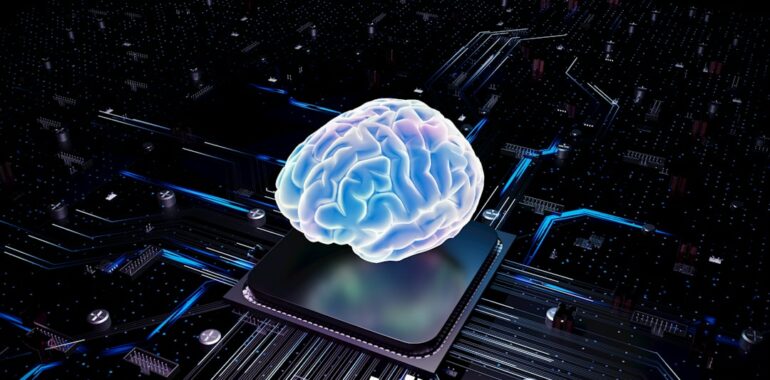The Role of Machine Learning in Advancing Modern Medicine

Discover how machine learning is revolutionizing the medical field, from enhancing data analysis to improving patient care outcomes.
Introduction
Artificial intelligence (AI) in medicine is transforming the healthcare landscape, offering unprecedented opportunities to enhance patient care, streamline operations, and accelerate medical research. At the forefront of this revolution is machine learning (ML), a subset of AI that enables computers to learn from and make decisions based on data. This blog explores the pivotal role of machine learning in advancing modern medicine, highlighting its impact, applications, and the challenges that lie ahead.
Understanding Machine Learning
Machine learning involves the development of algorithms that can identify patterns within vast datasets, enabling predictive analytics and informed decision-making. Unlike traditional programming, where rules are explicitly defined, ML systems learn and improve from experience. This capability is particularly valuable in medicine, where complex and multifaceted data abound.
Key Concepts in Machine Learning
- Supervised Learning: Algorithms are trained on labeled data, allowing them to predict outcomes based on historical information.
- Unsupervised Learning: These algorithms identify hidden patterns in unlabeled data, useful for discovering unknown relationships.
- Neural Networks: Inspired by the human brain, these networks consist of interconnected nodes that process information in layers.
- Decision Trees: These models use branching methods to illustrate every possible outcome of a decision, aiding in predictive analysis.
Applications of Machine Learning in Medicine
Machine learning’s versatility makes it applicable across various domains within healthcare. Here are some of the most impactful applications:
Enhancing Diagnostic Accuracy
ML algorithms can analyze medical images, such as X-rays and MRIs, with remarkable precision. For instance, neural networks have been trained to detect abnormalities in imaging scans, often identifying issues that may be missed by the human eye.
Predictive Analytics for Patient Outcomes
By analyzing patient data, ML models can predict the likelihood of certain outcomes, such as the risk of developing chronic diseases or potential complications post-surgery. This predictive capability enables proactive interventions, improving patient prognosis.
Personalized Medicine
Machine learning facilitates the customization of treatment plans based on individual patient profiles. By considering genetic, environmental, and lifestyle factors, ML models can recommend therapies tailored to each patient’s unique needs.
Streamlining Administrative Processes
From scheduling appointments to managing electronic health records (EHRs), ML can optimize administrative tasks, reducing the burden on healthcare professionals and allowing them to focus more on patient care.
Drug Discovery and Development
Machine learning accelerates the drug discovery process by analyzing vast datasets to identify potential drug candidates, predict their efficacy, and assess safety profiles, thereby reducing the time and cost associated with bringing new drugs to market.
Overcoming Challenges in Integrating Machine Learning
Despite its promising potential, the integration of machine learning into medicine faces several challenges:
Data Privacy and Security
Protecting patient data is paramount. Ensuring that ML systems comply with regulations like HIPAA and maintaining robust security measures are critical to building trust and safeguarding sensitive information.
Quality and Accessibility of Data
The effectiveness of ML models heavily relies on the quality and volume of data available. Ensuring data is accurate, comprehensive, and representative is essential for developing reliable algorithms.
Ethical Considerations
Machine learning algorithms must be designed to avoid biases that could lead to unequal treatment outcomes. Transparent and ethical AI practices are necessary to ensure fairness and accountability in medical applications.
Integration with Existing Systems
Seamlessly incorporating ML technologies into current healthcare infrastructures can be complex. Interoperability and user-friendly interfaces are crucial for successful adoption and utilization by healthcare professionals.
Regulatory Hurdles
Navigating the regulatory landscape for medical AI applications requires adherence to stringent standards. Collaborative efforts between technologists and regulatory bodies are needed to establish clear guidelines and facilitate innovation.
The Future of Machine Learning in Medicine
The trajectory of machine learning in medicine points towards increasingly sophisticated and integrated applications. Advancements in deep learning, combined with the proliferation of health data, will continue to enhance diagnostic tools, treatment personalization, and operational efficiencies.
Initiatives like GenAI.London are instrumental in empowering self-learners and professionals to navigate the complexities of machine learning and AI. By providing structured learning paths and fostering a collaborative community, such platforms contribute to the growing pool of skilled individuals ready to drive AI-driven medical advancements.
Conclusion
Machine learning stands as a cornerstone in the evolution of modern medicine, offering tools and insights that were previously unattainable. Its ability to analyze complex data, predict outcomes, and personalize treatments holds the promise of a more efficient, effective, and equitable healthcare system. As challenges are addressed and technologies continue to evolve, the integration of machine learning in medicine will undoubtedly lead to transformative improvements in patient care and medical research.
Ready to explore the future of artificial intelligence in medicine? Discover more at Invent AGI.




